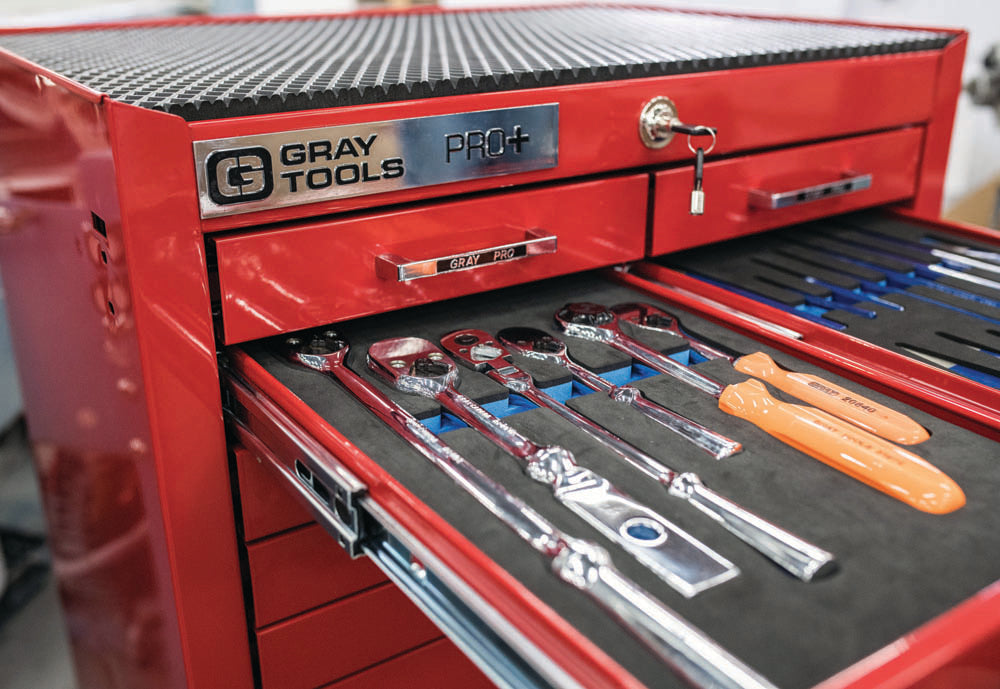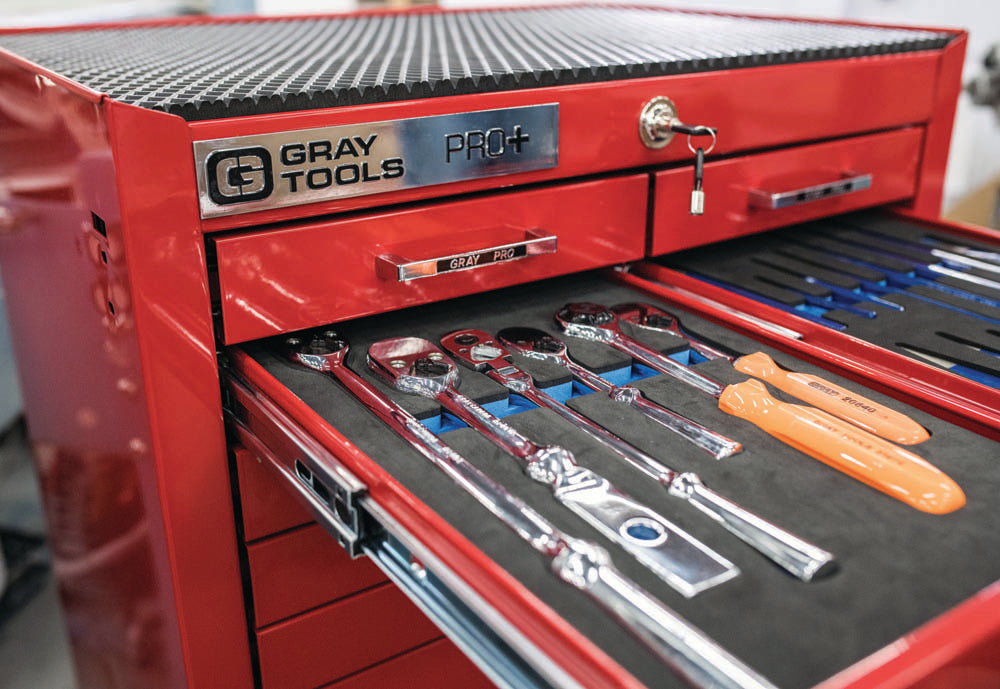Can you write off a tool box? It’s a question that might have crossed your mind if you’re a hardworking DIY enthusiast or a professional tradesperson. Well, let me tell you, my curious friend, the answer isn’t as straightforward as you might think. The tax world can be a bit tricky, but don’t worry, I’m here to break it down for you in simple terms.
When it comes to writing off expenses on your taxes, it’s all about determining whether an expense is considered a legitimate business expense. And that’s where things can get a little interesting when it comes to tool boxes. So, if you’re ready to dive into the world of tax deductions and tool boxes, let’s get started!

Can I Write Off a Tool Box? Exploring Tax Deductions for Tools
As a professional or a business owner, you may often find yourself investing in tools and equipment to support your work. One common question that arises is whether you can write off a tool box as a tax deduction. The answer to this question depends on various factors, including the nature of your work, the purpose of the tool box, and the tax laws in your country. In this article, we will delve into the world of tax deductions for tools and explore the possibilities of writing off a tool box.
Tax Deductions for Tools: The Basics
Before we explore the specifics of writing off a tool box, let’s first understand the basics of tax deductions for tools. In most countries, including the United States, Canada, and the United Kingdom, tools used for business purposes can be considered as deductible expenses. However, there are certain criteria that need to be met in order to claim these deductions.
Firstly, the tools must be necessary for carrying out your work. For example, if you are a carpenter, a tool box containing essential carpentry tools would likely meet this criterion. Secondly, the expenses must be reasonable and directly related to your work. This means that extravagant or excessive purchases may not be eligible for tax deductions. Finally, you must keep proper documentation and receipts to support your claim. This includes maintaining a record of when and where the tools were purchased, as well as the amounts spent.
Can I Write Off a Tool Box on My Taxes?
When it comes to writing off a tool box on your taxes, the answer is not a straightforward yes or no. In general, a tool box can be considered as a tax-deductible expense if it meets the aforementioned criteria. However, there are additional factors to consider that may affect the deductibility of your tool box.
One key factor is whether the tool box is considered a capital expenditure or a regular expense. Capital expenditures refer to assets that are expected to be used for a long period of time, usually more than one year. Tool boxes can fall into this category if they are of a higher value and are expected to be used for multiple years. In such cases, the cost of the tool box may need to be depreciated over its useful life, rather than being fully deducted in the year of purchase.
It’s important to consult with a tax professional to determine the specific rules and regulations regarding tool box deductions in your country or jurisdiction. They can provide expert advice based on your individual circumstances and help you take advantage of any available deductions.
Tips for Maximizing Tool Deductions
While the deductibility of a tool box may vary depending on your specific situation, there are several general tips that can help you maximize your tax deductions for tools:
- Maintain detailed records: Keep a meticulous record of all tool purchases, including receipts, invoices, and warranty information. This will make it easier to substantiate your deductions when tax season rolls around.
- Separate personal and business use: If you use your tools for both personal and business purposes, it’s crucial to calculate and claim the portion that is solely related to your work. This can involve keeping track of the time spent using the tools for each purpose or estimating the percentage of business use based on the nature of your work.
- Consider leasing options: In some cases, leasing tools instead of purchasing them outright may provide tax advantages. Leasing expenses can often be deducted in their entirety as regular business expenses, without the need for depreciation.
Benefits of Writing Off Tools for Tax Purposes
Writing off tools as tax deductions can offer several benefits for professionals and business owners:
- Reducing taxable income: By deducting the cost of tools, you effectively lower your taxable income for the year. This can result in a lower tax bill and potentially increase your overall cash flow.
- Investing in your work: Writing off tools encourages professionals to invest in their work by providing a financial incentive. This can help improve productivity, increase competitiveness, and support professional growth.
- Offsetting business expenses: Writing off tools as business expenses helps offset the overall costs of running a business. This can contribute to a healthier bottom line and provide more financial resources for expansion or other business needs.
Tools vs. Supplies: Understanding the Difference
When it comes to tax deductions, it’s important to differentiate between tools and supplies. While tools are typically considered long-term assets, supplies are consumables that are used up within a short period of time. Examples of supplies include nails, screws, glue, and paint. The deductibility of supplies may differ from tools, so it’s essential to keep track of these expenses separately and consult with a tax professional for guidance.
Conclusion
While the ability to write off a tool box as a tax deduction depends on various factors, it is indeed possible in many cases. By understanding the rules and regulations of tax deductions for tools, maintaining accurate records, and seeking professional advice, you can make the most of available deductions and potentially reduce your tax liability. Remember to consult with a tax professional or accountant for personalized advice tailored to your specific circumstances.
Key Takeaways: Can I Write Off a Tool Box?
When it comes to tax deductions, you might be wondering if you can write off a tool box. Here are some key things to know:
- 1. Generally, you cannot write off a tool box as a business expense on your taxes.
- 2. However, if the tool box is used exclusively for work and is necessary for your job, you may be able to claim it as a deduction.
- 3. Keep detailed records and receipts to support your claim in case of an audit.
- 4. Consult with a tax professional to ensure you are following all the necessary rules and regulations.
- 5. Remember that tax laws can vary, so it’s important to stay updated and informed.
Frequently Asked Questions
Are you wondering if you can write off a tool box? Here are some common questions and answers related to this topic.
1. Can I deduct the cost of a tool box for my business?
Yes, you may be eligible to deduct the cost of a tool box for your business, but there are certain conditions that need to be met. The IRS considers tools and equipment used in your business as necessary expenses that can be deducted. However, the tool box must be used exclusively for your business and not for personal use. Keep in mind that there are certain limits and restrictions on the amount that can be deducted for business equipment, so it’s important to consult with a tax professional for specific details.
Additionally, if the cost of the tool box is significant, you may be required to depreciate the expense over a period of time rather than deducting the full cost in one year. This means that you can deduct a portion of the cost each year over the useful life of the tool box. Again, it’s advisable to seek advice from a tax professional to understand the specific rules and limitations that apply to your situation.
2. Can I write off a tool box if I use it for both personal and business purposes?
If you use a tool box for both personal and business purposes, you can only deduct the portion of the expense that relates to your business use. This means you’ll need to determine the percentage of time you use the tool box for business versus personal use. For example, if you use the tool box 70% of the time for your business and 30% of the time for personal use, you can deduct 70% of the cost as a business expense.
Keep in mind that you’ll need proper documentation to support your deduction. It’s important to keep a record of the dates and times you use the tool box for business purposes, as well as any other relevant information that can help substantiate your claim. This will be helpful in case you’re ever audited by the IRS.
3. What if I lease a tool box instead of purchasing one?
If you lease a tool box instead of buying one, you can generally deduct the lease payments as a business expense. However, the deduction may be subject to certain limits and restrictions depending on the specific terms of the lease agreement. It’s best to consult with a tax professional to understand the implications of leasing a tool box for your business.
When leasing a tool box, it’s important to keep track of your lease payments and any associated costs. These expenses can usually be deducted on your business tax return, providing you with a potential tax benefit. Again, it’s advisable to seek professional advice to ensure you’re following the appropriate guidelines.
4. What if I use a tool box as an independent contractor?
If you work as an independent contractor and use a tool box for your business, you may be eligible to deduct the cost of the tool box as a business expense. As with any other business expense, the tool box must be used exclusively for business purposes. If you use the tool box for personal use as well, you can only deduct the portion of the expense that relates to your business use, similar to the scenario mentioned earlier.
Keep in mind that as an independent contractor, it’s essential to maintain accurate records of all business-related expenses, including the cost of the tool box. Having proper documentation will help ensure you can support your deductions and comply with any potential IRS requirements.
5. Are there any exceptions or special rules regarding tool box deductions?
There may be exceptions and special rules regarding tool box deductions depending on your specific circumstances and the nature of your business. For example, if you’re in the trade or construction industry, the IRS may have specific guidelines on how tools and related equipment can be deducted.
It’s recommended to consult a tax professional who specializes in small businesses or self-employment to understand the rules and regulations that apply to your particular situation. They can provide personalized advice based on your unique circumstances and help ensure you’re maximizing your deductions while staying compliant with the IRS requirements.

Deducting Tools & Supplies
Summary
Alright, let’s wrap things up! Basically, you can’t write off a tool box as a regular expense on your taxes. But there’s a chance you might be able to deduct it as a business expense if you use it solely for work. Keep in mind, the rules can be a bit tricky, so it’s best to consult a tax professional to be sure. Hope that clears things up!
In short, writing off a tool box on your taxes is not straightforward. It depends on whether it’s for personal or business use. Talking to a tax expert is your best bet to figure it all out. Good luck!
